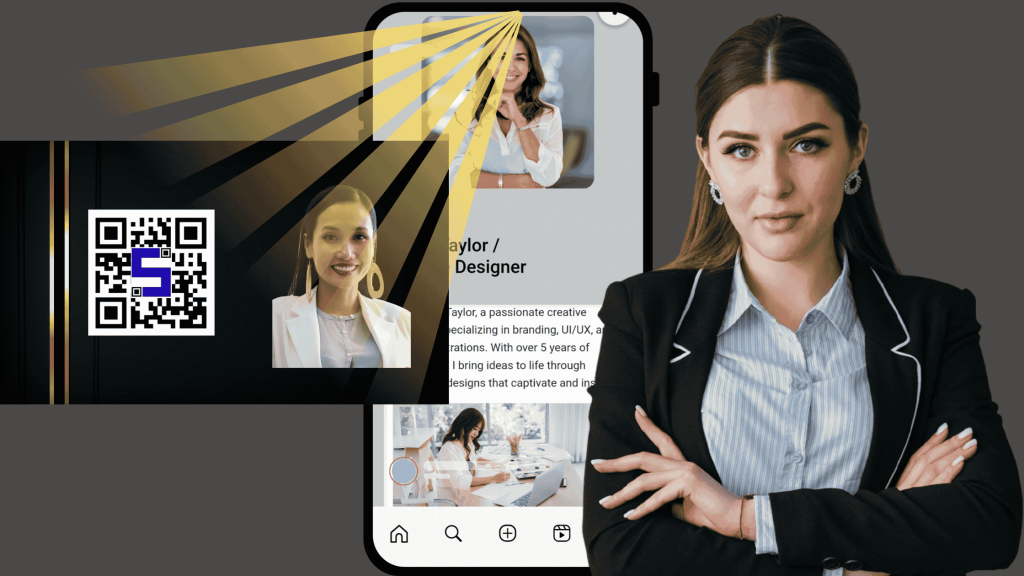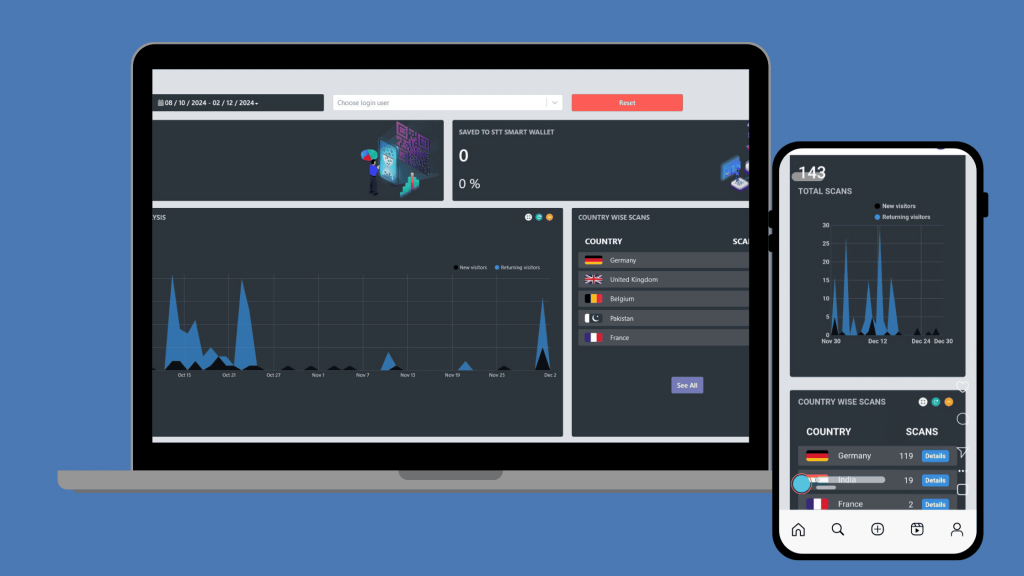The Ultimate Guide to QR Code Business Cards in 2025

Introduction: Why Traditional Business Cards Are Fading
For decades, business cards have been the go-to tool for professionals to share their contact information and make lasting connections. However, in the digital age, traditional paper business cards are becoming increasingly outdated. They are easy to lose, costly to print in bulk, and lack the flexibility of digital updates. With the rise of eco-conscious business practices and a growing preference for digital interactions, professionals and businesses are turning to a more innovative solution: QR code business cards.
As businesses shift toward digital solutions, QR code business cards offer a modern alternative that combines convenience, sustainability, and enhanced networking capabilities. They eliminate the common issues associated with traditional cards, such as incorrect information, difficulty in organizing contacts, and the inability to integrate with digital workflows.
What Are QR Code Business Cards?
QR code business cards are digital or printed cards that feature a scannable QR code, which instantly directs users to a personalized landing page, website, contact details, or social media profile. Unlike traditional business cards that require manual data entry, QR code business cards allow seamless sharing of information with just a scan.
These modern cards can be stored on smartphones, printed on physical materials, or embedded in email signatures, providing a highly versatile way to network in both online and offline settings. They are particularly useful for professionals who attend networking events, conferences, or trade shows, where exchanging contact details quickly and efficiently is crucial.
Benefits of Using QR Code Business Cards
1. Instant Information Sharing
A single scan allows the recipient to access all your details without typing or storing a physical card. This ensures quick and hassle-free information exchange, reducing the chances of lost or misplaced business cards.
2. Eco-Friendly and Cost-Effective
Printing thousands of paper business cards is not only expensive but also harmful to the environment. QR code business cards eliminate paper waste and reduce costs over time. Businesses can save on printing and distribution expenses while contributing to sustainable practices.
3. Editable and Dynamic
Unlike traditional cards, which require reprinting for updates, QR codes can be modified to link to updated profiles, new phone numbers, or changed job titles without needing a new card. This dynamic feature makes QR code business cards an excellent long-term solution for professionals who frequently update their contact details.
4. Enhanced Engagement and Customization
QR codes can direct users to multimedia content such as videos, portfolios, product demos, or appointment scheduling pages, making networking more interactive and engaging. This allows professionals to create a strong first impression and showcase their work beyond a simple name and phone number.
5. Improved Analytics
With a QR code business card, you can track when and where your QR code is scanned, allowing you to measure engagement and effectiveness. This data can be used to refine your networking strategy and optimize outreach efforts.
6. Multiple Contact Options in One Scan
Traditional business cards have limited space, often restricting the amount of information they can display. With QR code business cards, you can include various contact options, such as phone numbers, email addresses, LinkedIn profiles, and social media links, all within a single QR code.
How to Create a QR Code Business Card with LifeTags
Step 1: Sign Up on LifeTags.io
Create an account on LifeTags to get started with your personalized QR code business card. The process is simple and takes just a few minutes.
Step 2: Customize Your Profile
Add your essential details, including name, job title, company, phone number, email, website, and social media links. You can also include a profile picture or logo to enhance branding. A well-designed digital business card can leave a lasting impression and improve credibility.
Step 3: Generate Your QR Code
Using LifeTags’ intuitive QR code generator, create a unique code that links to your digital business card. You can customize the design, color, and style to match your branding. This level of personalization helps maintain brand consistency across different marketing materials.
Step 4: Choose Your Format
Decide how you want to use your QR code. You can print it on physical cards, embed it in your email signature, or save it as an image for easy sharing. You can also add it to presentations, business proposals, or your website to make your contact information easily accessible.
Step 5: Share and Track Engagement
Start sharing your QR code business card with potential clients and partners. Use LifeTags’ analytics feature to monitor how often your QR code is scanned and adjust your networking strategy accordingly. This data-driven approach helps you understand which networking events or marketing efforts generate the most interest.

Best Use Cases & Real-Life Examples
1. Networking Events and Conferences
Instead of handing out traditional business cards, professionals can share a scannable QR code that directs recipients to a comprehensive digital profile. This enhances engagement and ensures that contact details are stored digitally.
2. Freelancers and Entrepreneurs
Freelancers can showcase their portfolios, testimonials, and booking links through a QR code business card, making it easier to convert prospects into clients. A well-designed digital card can set freelancers apart in competitive industries.
3. Corporate Professionals
Executives and employees can use QR codes on LinkedIn profiles, company websites, and even Zoom backgrounds to share contact information effortlessly. This is particularly useful in industries where digital networking is the norm.
4. Real Estate Agents and Consultants
Agents can link their QR codes to property listings, virtual tours, or appointment scheduling tools, streamlining the client engagement process. This allows for a seamless experience for potential buyers and sellers.
5. Restaurants and Hospitality Industry
Chefs, restaurant managers, and hospitality professionals can use QR code business cards to share menus, reservation links, and social media handles with customers. This enhances customer experience and promotes business growth.
6. Creative Professionals
Artists, designers, and musicians can use QR code business cards to showcase their work, share portfolios, or provide direct links to their latest projects. This can be a powerful tool for attracting clients and collaborators.

Conclusion: Future of Networking
The digital transformation of networking is inevitable, and QR code business cards are at the forefront of this shift. As technology advances, professionals who adopt smart and efficient ways to share their information will have a competitive edge. By leveraging LifeTags’ QR code business cards, individuals and businesses can modernize their networking strategies, create a seamless user experience, and build lasting professional relationships effortlessly.
QR code business cards are more than just a trend—they are a practical and forward-thinking solution to the evolving needs of modern professionals. If you’re ready to upgrade your networking game, sign up for LifeTags today and create your own QR code business card!